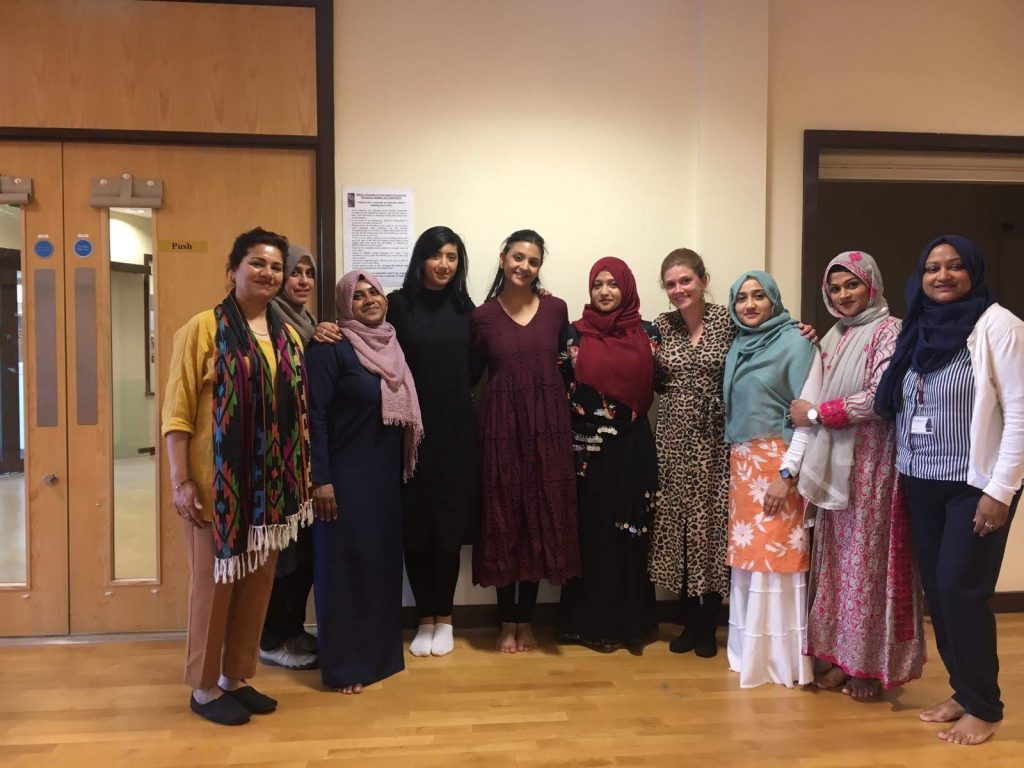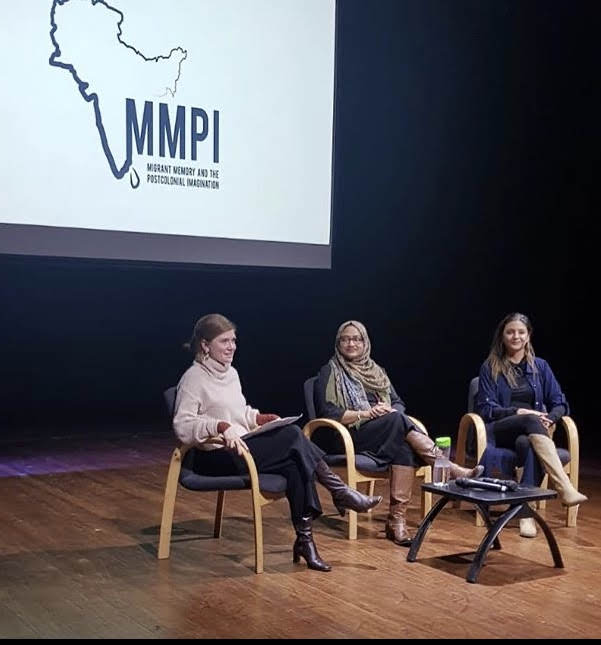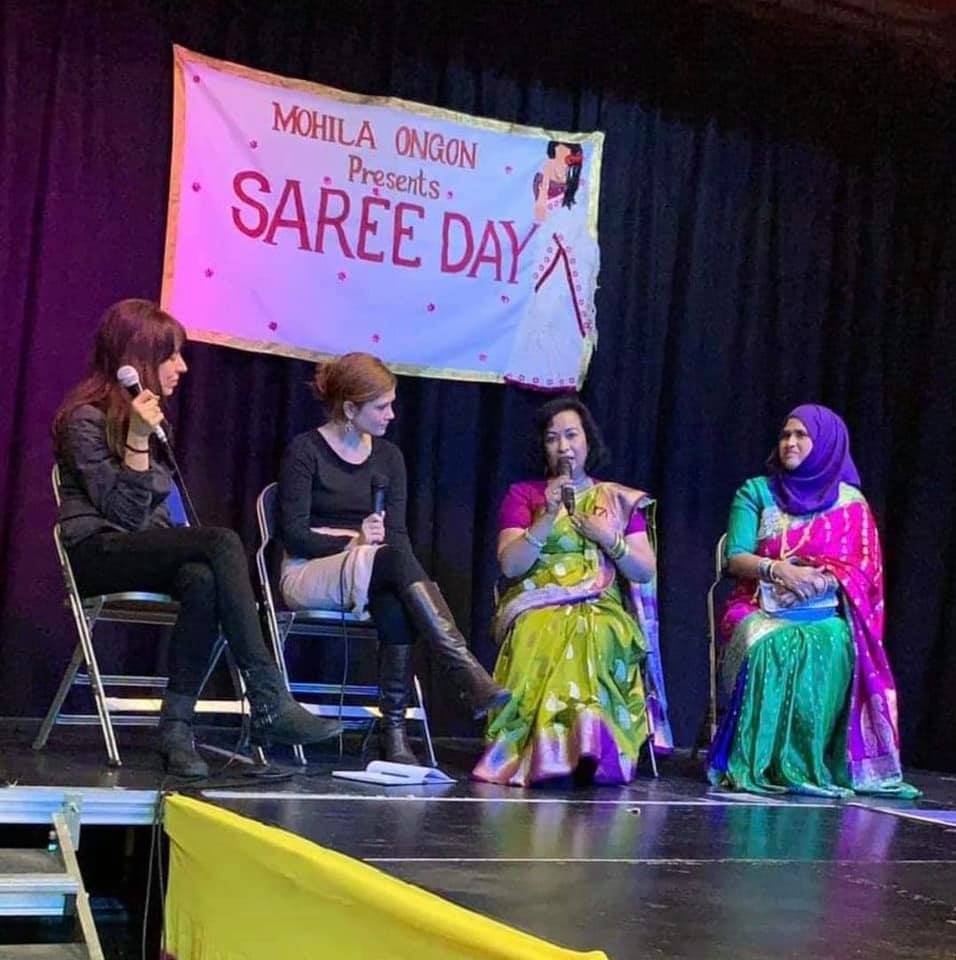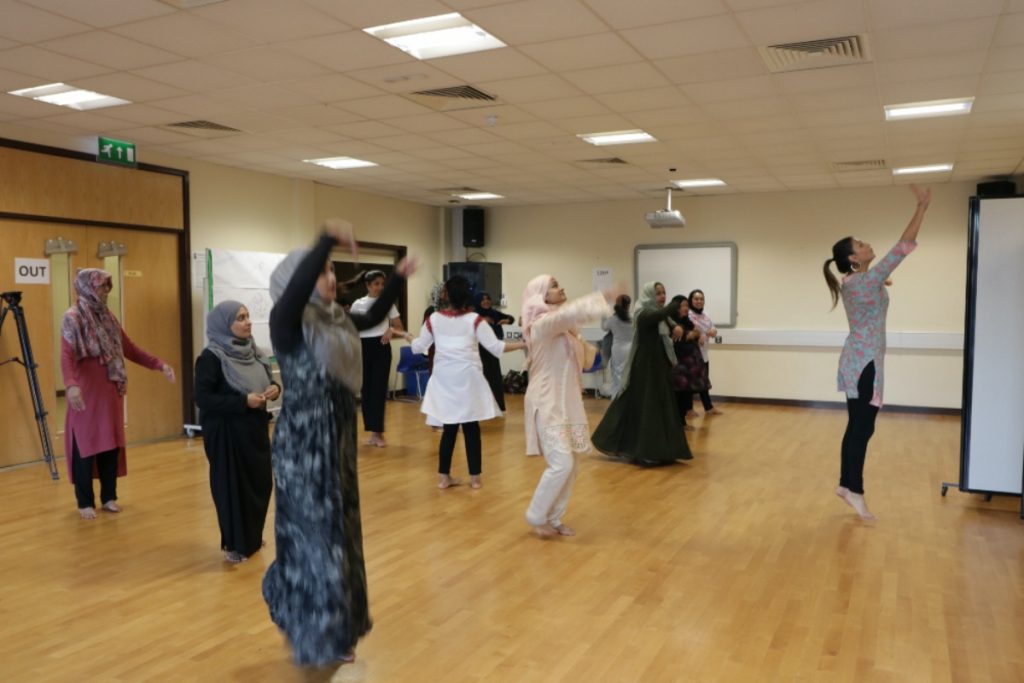Julia Giese
This PhD project explores the performance and negotiation of embodied memories among the female Bangladeshi diaspora in Tower Hamlets, London. The experiences of political ruptures such as the 1947 Partition of British India, the Bangladeshi independence war and ensuing migration to London, have resulted in a heterogeneous kaleidoscope of forgotten and imagined memories among the female Bangladeshi diaspora in Britain. Due to the fragmentation of communities after the end of empire, diasporic subjects have complex, plural and often conflicting relationships to shared pasts.
Highlighting the potential of both professional and vernacular dance for the transmission, creation and recreation of memories, I found that embodied mnemonic expressions of British-Bangladeshi women are marginalised in a wider public sphere and in active cultural memory in Britain today. However, especially celebrations in women-only spaces, which are testimony to mnemonic agency, offer opportunities for the negotiation of third space memories in the diaspora. It is important to account for the creative and strategic agency the participants of women-only events apply during commemorative celebrations, which are embedded in existing mnemonic norms but strategically engage in a negotiation with them. These processes further heteropathic memory and identification among its attendees and increasingly emancipate them as agents in the making of their past, present, and future. This agency solidifies structures, which allow their third space memories that are an ever-negotiated product of their experiences of Partition, the liberation war of Bangladesh, and their migration to London, to take part in wider forms of active cultural memory in Britain.
This PhD responds to limitations of social science research methods in gathering data on diasporic memory, including its form and content, practices of remembering, and its embeddedness in wider socio-political discourses by proposing dance-based methodologies as having significant potential in the field of memory studies to address alternative ways of knowing and relating to the past.
Responding to the limitations of social science research methods in gathering data on diasporic memory, including its form and content, practices of remembering, and its embeddedness in wider socio-political discourses, this paper proposes performance-based methodologies as having significant potential in the field of memory studies to address alternative ways of knowing and relating to the past. Applying methods borrowed from ethnographic and participatory approaches, this paper is based on participant observation during women-only celebrations among the Bangladeshi diaspora in London and a two-months dance workshop facilitated in collaboration with dancer Kesha Raithatha at Mulberry School for Girls.
Follow PhD Researcher Julia Giese:
https://twitter.com/juliahgiese
Research Partners:
Selected Presentations:
2020
Moving Pasts: Vernacular dance as a vehicle for embodied memories among the female Bangladeshi diaspora in Tower Hamlets, London; Conference: Memories in Transit: Transnational memory and identity across modern regimes of displacement and dispersion, Cambridge University
2020
“You should join our WhatsApp group”: Re-imagining the diasporic, female body through participatory digital practices; Workshop: Area Studies, Digital Media Practices and New Research Approaches, Freie Universität, Berlin – Humboldt Universität zu Berlin
2019
Dance as an Access Point to Identity and Belonging in the Diaspora Space; Conference: International Association for Media and Communication Research, Universidad de Complutense de Madrid
2019
Embodied Partitions: Exploring women’s embodied memories of the 1947 Partition of India through dance, Conference: Memory Studies Association, Universidad de Complutense de Madrid

Dance Workshop at Mulberry School for Girls, 2019
A Season of Bangla Drama 2019, Talk: Memory and Belonging in the Diaspora (with Sabina Khan and Kesha Raithatha)
Mohila Ongon’s Saree Day 2019, Panel Discussion on Remembering Sarees 
Dance Workshop at Mulberry School for Girls, 2019
